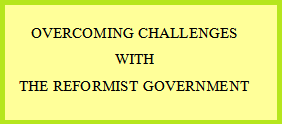
ADDIS ABABA (ENA) – Food and Agriculture Organization (FAO) of the United Nations warned that the fast evolving COVID-19 pandemic is likely drive food insecurity and increases the number of people in need of humanitarian assistance in Ethiopia.
FAO Ethiopia Representative, Fatuma Djama Seid told ENA that the pandemic coupled with the desert locust has aggravated the impact on agriculture even at household level.
Ethiopia has had 8.5 million people in need of humanitarian assistance before COVID-19 outbreak which is expected to rise now, she said.
“Today the number is likely to increase because as we all know borders have been closed; markets and the value chain have been disrupted. All these disruption will make it more difficult for the farmers to produce, so we expect a decrease in production as well as loss in earnings,” she elaborated. Fatuma pointed out that about one million Ethiopians have been affected by desert locust invasion, require emergency food assistance.
Ethiopia’s food security has been showing progress, the Representative stated, indicating, however, the spread of the global pandemic is inadvertently affecting the achievements.
Moreover, she pointed out that FAO is assisting the government in mitigating the impact of COVID-19 and other hazards on household food security and a report is expected to unveil the results next month.
“Before the COVID-19 pandemic, the food security situation in Ethiopia was slightly improving. As the State of Food Security and Nutrition in the World that has just been launched July, 13, 2020; the number of undernourished people in Ethiopia has gone down from 28.4 million in 2004 to 2006 to 21.5 million in 2017 to 2019,” Fatuma stated. Furthermore, she emphasized “this gain is now being impacted by the outbreak of COVID-19 pandemic.”
The pandemic is affecting agriculture which engages 70 percent of the population and major sources of livelihood, the Representative stated, adding “coffee, oilseeds, flower cut, vegetables and meat export are being affected.”
Thus, she stressed there is a considerable export income loss. “We are extensively engaged with the government of Ethiopia, particularly with the Ministry of Agriculture in two areas; we are engaged in control operation and livelihood support,” Fatuma noted.
FAO in Ethiopia has been an active development partner to the government of Ethiopia in implementing a wide range of programs and projects to improve the food security and nutrition of its population as well as respond to emergencies in food and agriculture.
The Ethiopian Herald July 24, 2020




